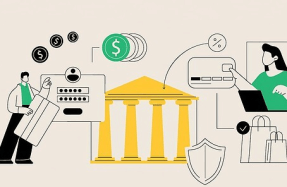
INTRODUCTION
Ageing increases the risk of human diseases: of the roughly 150,000 people who die each day across the globe, about two-thirds die from age-related cause.
The idea of stress and aging was born many years ago while one of the co-authors of this paper, Simon L. Dolan, was a junior researcher working with the famous team of Dr. Hans Selye at the University of Montreal. Hans Selye is considered by many to be the “father of stress”, or the founder of the concept of stress in modern medicine.1 Dolan joined the team in 1978 and stayed and worked with Hans Selye until his unexpected death in 1982. In 1980, Selye wrote the preface to Dolan and Arsenault first book on stress in French2 . The team had several periodic meetings where new discoveries by members of the team were shared, and substantial time was also devoted to new ideas for setting a future research agenda. This was the first time that we heard Hans Selye and his close friend Dr. Paul Rohan propose a redefinition of stress as a concept of accelerated aging (or premature aging). But we did not really set up a program to study it. Now, as we are preparing to publish the latest editions of books on chronic stress3 , we thought it is an opportunity to tackle again this challenging proposition and perhaps shed more light on the multiple relationships between stress and aging. We hope readers will understand this phenomenon better and perhaps can be involved in adopting measures and respective lifestyles to slow down the process of premature aging. In addition, an attempt is made to simplify concepts without trading off the scientific rigor.
Simply stated, aging in humans represents the accumulation of changes in a human being over time and can encompass physical, psychological, and social changes. Reaction time, for example, may slow with age, while memories and general knowledge typically increase. Ageing increases the risk of human diseases: of the roughly 150,000 people who die each day across the globe, about two-thirds die from age-related causes4 . More than 70% of people over 65 have two or more chronic conditions such as arthritis, diabetes, cancer, heart disease and stroke5 . Studies of diet, genes, and drugs indicate that delaying one age-related disease probably staves off others. At least a dozen molecular pathways seem to set the pace of physiological ageing6 .
WHY DO SOME PEOPLE LIVE LONGER THAN OTHERS?

Obviously, increasing life span without disease is sought by most people. Researchers have tweaked multiple pathways to give rodents long and healthy lives. For example, restricting calorie intake in mice or introducing mutations in nutrient-sensing pathways shows extended lifespans by as much as 50%. And these “Methuselah mice” are more likely than the control mice to die without any apparent diseases. Post-mortems reveal that tumors, heart problems, neurodegeneration, and metabolic disease are generally reduced or delayed in long-lived mice. In other words, extending lifespan also seems to increase “health-span”, or the time lived without chronic age-related conditions. These insights have hardly made a dent in human medicine. The current tools for extending






